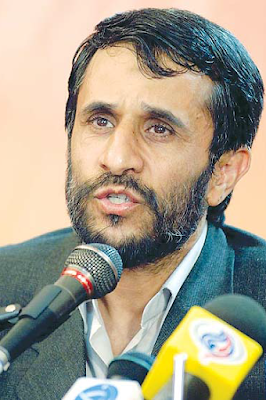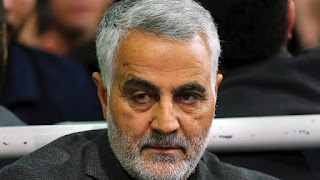Time for the US to Send a Message by Cutting UN Funding
The obvious purpose of the GA vote was to give certain members of the international community an opportunity not only to reject Jerusalem as Israel’s capital, but to effectively reprimand the United States. The fact that Egypt, which receives $1.3 billion annually in US foreign aid, first authored the resolution makes this blatant display of anti-Americanism all the more egregious. The US must act to disincentivize UN members states from future attempts to neutralize its Security Council veto, and to try to humiliate it in the General Assembly.'The Palestinians have lost the support of the Arab world'
The US provides 22% ($4 billion) of the UN’s mandatory contributions — far exceeding the contributions from other major countries — for administrative and programs costs, as well as for peacekeeping operations. The remaining $6 billion in US support are voluntary contributions that fund organizations such as UNICEF, the World Food Program and UNRWA (whose existence likely perpetuates the Palestinian conflict).
On December 24, US Ambassador to the UN Nikki Haley offered an initial response to the resolution: that the US will cut the UN’s 2018-19 fiscal year operating budget by $285 million. Admittedly, this reduction is intended to “increase the UN’s efficiencies while protecting [American] interests.” Though a step in the right direction, more needs to be done to discourage the UN’s recent behavior.
The US, in the world of international relations, cannot always expect an unambiguously causal relationship between financial support and policies it wants. However, when illiberal actors hijack the UN, and pursue extraordinary measures to actively interfere with internal US policies, it is time to impose a consequence: reduced funding to the United Nations.
Middle East expert and senior lecturer at Bar Ilan University, Arutz Sheva weekly columnist Dr. Mordechai Kedar says that the Palestinian Authority is losing support in the Arab world, claiming that former allies are growing “sick of the Palestinians,” as they find support for PA efforts against Israel contrary to their national self-interest.JPost Editorial: Wanted: Palestinian pragmatism
Interviewed by Channel 20, Kedar says that the Arab world is increasingly impressed by “Israel’s internal stability, its democracy - which even allows all sorts of thugs to say they don’t want to enlist - and the fact that Israel is comprised 20% of Arabs, and not one of them is fleeing. They even know that the Palestinians, who live under Israeli ‘occupation,’ live much better than all the other Arabs in the Middle East. They understand that Israel is something that doesn’t mesh with what they were taught about it - it is something different.”
Kedar explained that the Arab world was growing annoyed with PA efforts against Israel in light of US President Donald Trump’s recognition of Jerusalem as the capital of Israel.
“What happened was that Trump warned that he would stop funding countries that voted against the US - in Egypt, nobody wants to lose their food just because the Palestinians want Jerusalem. Therefore, in this matter the Palestinians have succeeded in annoying many Arabs in the Middle East, to the extent that people say, ‘Why do we have to be held captive by the Palestinians in the peace process with Israel? If it’s in our interest to have peace with Israel, let’s get on with it, and let the Palestinians break their backs with Israel.’”
“In my opinion, the Palestinians have lost the Arab world to a large extent, and the whole Palestinian national project stands on brink of collapse, because Trump pulled the PA ‘Jerusalem card’ - which has no substance - from their tower of cards.”
Washington has largely remained silent in the face of extreme Palestinian reactions to US President Donald Trump’s decision to recognize Jerusalem as the capital of Israel.
Hardly a peep was heard from the Trump administration when Palestinian Authority President Mahmoud Abbas declared that the US, by recognizing Jerusalem as Israel’s capital, had disqualified itself as a fair broker in the Israeli-Palestinian conflict. This is despite the fact that the US transfers hundreds of millions of dollars in aid to the PA every year.
Nor was there a reaction when Fatah officials such as Jibril Rajoub announced that American Vice President Mike Pence, who was supposed to visit the region in December, had become a persona non grata in areas controlled by the PA. Rajoub asked other Arab leaders to follow suit. Yet this snub was largely ignored by the US. Pence’s office said that his visit was canceled due to an important vote on US tax reforms.
While the US has remained restrained, the barrage of attacks from the PA has not let up. The official Fatah Twitter account continues to share outrageous posts since Trump’s decision, as reported by Palestinian Media Watch.
On December 14, for instance, a tweet was sent out that juxtaposed a picture of Trump with one of Hitler and added, “I don’t see any different [sic], do you?” Then, during a sermon on December 20, Mahmoud Habbash, Abbas’s adviser on religious and Islamic affairs, condemned the US by saying Trump’s recognition was “rubbish” and worth less than “the urine of one Jerusalem child.”
There was no sign that – as US officials originally hoped – the extreme initial reactions from the PA to Trump’s decision were quieting down.
Despite pressure from Saudi Arabia, the United Arab Emirates, Kuwait and perhaps other Arab countries such as Jordan and Egypt, Abbas and other Palestinian leaders refuse to tone down their attacks on the US and take seriously a peace deal now being hammered out by the Trump administration.








































